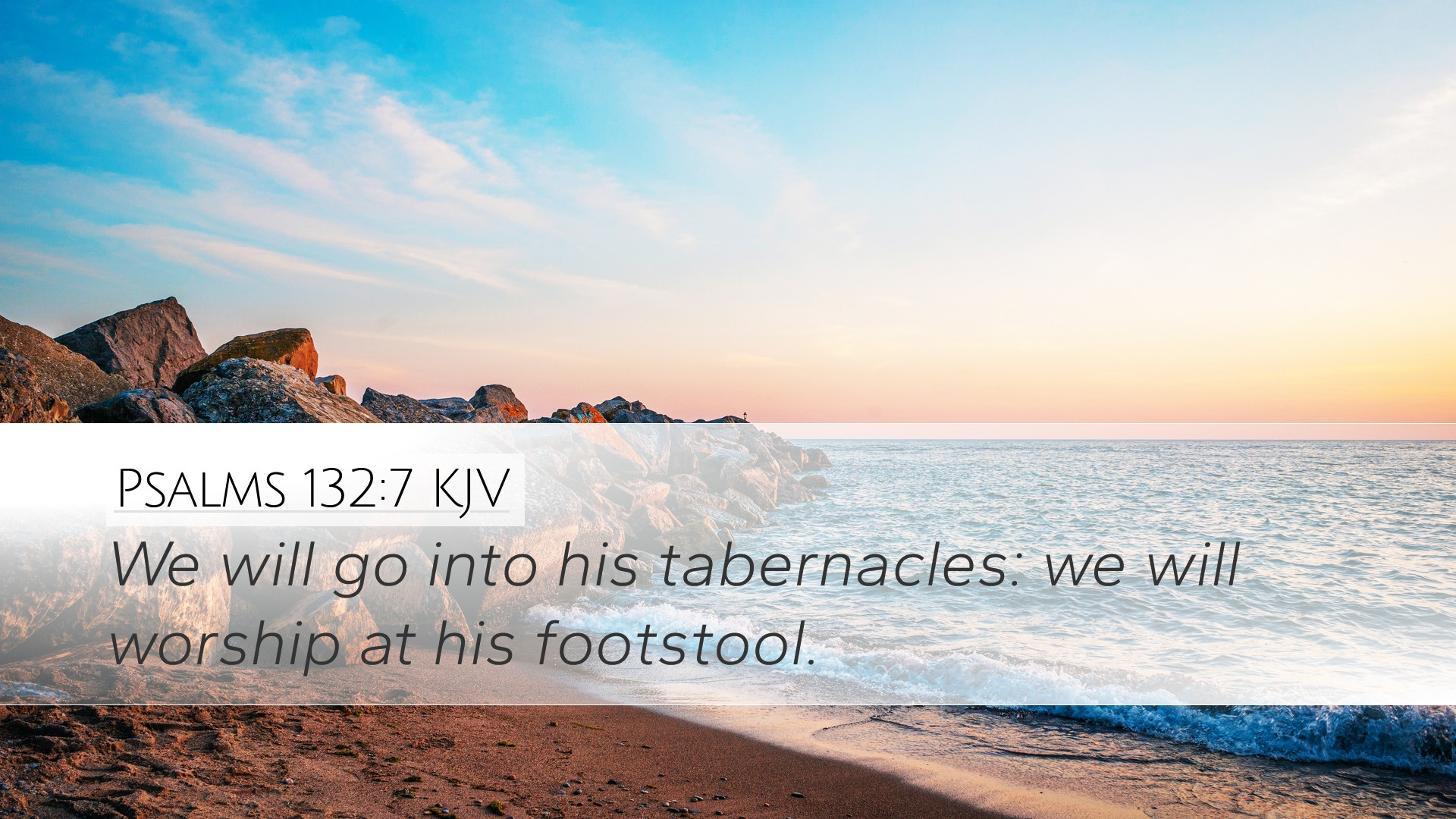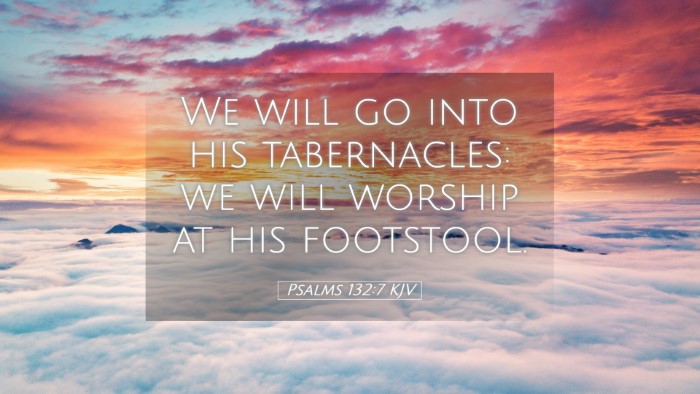Psalms 132:7 Commentary
Verse: "We will go into his tabernacles: we will worship at his footstool."
Introduction
The verse from Psalms 132:7 serves as a profound declaration of the desire of the faithful to enter into the presence of God for worship. This particular passage captures the deep yearning of God’s people to seek communion with their Creator, as well as their recognition of His holiness and majesty.
Contextual Background
This Psalm is traditionally attributed to David, reflecting on his covenant with God regarding the establishment of a permanent dwelling place for the Ark of the Covenant in Jerusalem. The historical context underscores the significance of the Ark as a symbol of God's presence among His people, highlighting the relationship between divine worship and the community of believers.
Historical Significance
David’s quest for the Ark underscored his heart for God, emphasizing not just a desire for physical space but a spiritual longing to connect with the Divine. The psalm echoes themes of divine promise and the people’s response through worship.
Commentary from Notable Scholars
Matthew Henry
Henry discusses this verse within the broader context of God's redemptive work among His people. He remarks on the phrase "we will go into his tabernacles," which signifies a collective spiritual journey. It emphasizes the importance of gathering in corporate worship. The "tabernacles" imply both the physical place of worship and the spiritual dwelling of God with His people. Henry highlights that this collective approach to worship reflects unity among believers.
Albert Barnes
Barnes elaborates on the richness of the worship experience suggested in this passage. He notes that “worship at his footstool” symbolizes an attitude of humility and reverence before God. The sentiment of approaching God in worship acknowledges His sovereignty and majesty. Barnes interprets the verse to mean that true worshippers recognize they are unworthy to approach God on their own terms and thus approach Him in humility, seeking to honor Him properly.
Adam Clarke
Clarke provides further insight into the notion of “footstool” in this verse, referring to it as indicative of God’s supreme authority. He also stresses the importance of dedication in worship, encouraging believers to view worship not merely as an obligation but as a joyous expression of love and devotion. Clarke emphasizes that entering into God's tabernacles is an exercise in faith, invoking the need for preparation and reverence before the Lord.
Thematic Insights
- The Call to Worship: This verse serves as an invitation to believers to engage in worship.
- The Nature of Worship: The act of worship is portrayed as an acknowledgment of God’s holiness and a response from the community towards His providence.
- Collective Unity: The plural "we" emphasizes the corporate aspect of worship, indicating the importance of unity among God’s people.
- Humility before God: Approaching God’s footstool symbolizes the posture of humility and the recognition of our need for grace.
Practical Applications
This verse prompts several reflections on worship today:
- Corporate Worship: It emphasizes the necessity and importance of gathering with fellow believers to worship.
- Posture in Worship: It encourages a humility that acknowledges God’s sovereignty and grace.
- Preparation for Worship: Believers are called to prepare their hearts and minds to enter into God’s presence meaningfully.
- Communal Responsibility: This reflects a shared commitment to honor God and support one another in faith.
Conclusion
Psalms 132:7 encapsulates a heart devoted to worshiping God. The collective aspiration to enter His tabernacles signifies a deep reverence and longing for communion with the Divine. As pastors, students, theologians, and scholars reflect on this verse, it serves as a reminder of the beauty and necessity of genuine worship, encouraging us to foster a community that seeks God earnestly and joyfully. The insights from Henry, Barnes, and Clarke illuminate the complex yet fulfilling nature of worship, rooted in humility, covenant faithfulness, and collective unity before God.


